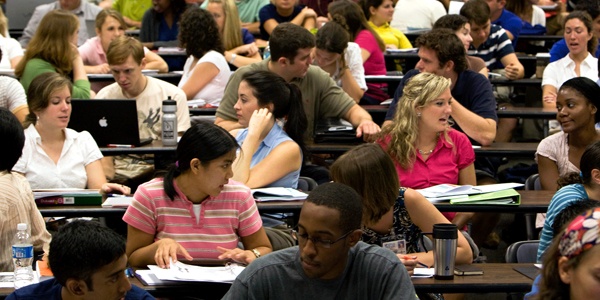
How Many Levels Of Education Are There?
Regarded as one of the best countries for education in the world, the United Kingdom prides itself in having an educational system that excels in quality and standard. The UK competes with the likes of other countries like the USA, France, Germany and Canada to stay on the top 5 spots on the list of countries giving the best education.
So, let’s get down to brass tacks.
How many levels of education does a child growing up in the UK have to undergo?
The entire UK differs geographically as England, Scotland and Wales and Ireland. Although all three countries have their own education system, they only slightly vary from each other.
Hence, it only makes sense that we discuss education in UK in general terms.
The Levels
In England, Wales and Northern Ireland, the Regulated Qualifications Framework or the RQF is the governing body that sets the regulations for education. These countries have at least 8 levels of education that start right from primary school to Higher Education or HE.
In Scotland alone, there are 12 levels that are set out by the SCQF or the Scottish Credit and Qualifications Framework.
In this article, we aim to give you an elaborate explanation about the levels of education charted out by the RQF for England, Wales and Northern Ireland.
An Analysis Of The First Four Stages Of Education

Entry Level
- The entry level is the most basic level which includes students aged 5 to 7.
- Entry-level qualifications are available in levels 1,2 and 3 ,with each one being more difficult than the previous level.
What are the qualifications that are sought out for children at the entry level?
- Entry level skills and functions
- Entry level English for foreign children
- Entry level Certificates or ELC’s
- Skills of life
What is taught at the entry level?
All the basics of subjects like Math, Science, English language, History, Geography, and Music form the basis of the curriculum. Children also undergo a Phonic Screening to determine their ability to decode and understand phonics.
Level 1
Students belonging to the age category of 7 to 11 comprise the first level. The curriculum on these levels is based on enhancing the knowledge of core subjects. At the end of these levels students are qualified on :
- English reading and grammatical skills
- Mathematics
- Science
- Level I certificates
- Level 1 National Vocational Qualification or NVQ
- Music grades 1, 2 and 3
- Level 1 ESOL
Level 2
In their second level of compulsory education children are usually within the age group of 11 to 14.
Along with the basic subjects that they studied in Level 1, the curriculum includes other subjects like:
- Art and Design
- Physical Education
- Modern Foreign Languages
- Design and Technology
- Computing
Level 2 qualifications include:
- GCSE grades A*, A, B or C
- O level grades A , B or C
- Music grades 4 and 5
- Intermediate apprenticeships
- Level 2 ESOL
Level 3
This stage lasts from 14 to 16 years of age and along with Level 4 it is the concluding stage of compulsory education at the school level.
Level 3 qualifications include:
- International Baccalaureate diploma or IB
- Diploma for access to higher education
- Tech level
- Applied general
- Advanced subsidiary level or AS
- Grades A,B,C,D or E of A level.
Apart from the core subjects of Math, Science and English, children of this level are also taught Computing, Physical Education and Citizenship.
Level 4
Level 4 acts as a bridge between level 3 and 5 and is a big indicator of a greater understanding and a higher level of learning. In level 4, students are qualified enough to earn:
- Higher national certificate or HNC
- Certificate of Higher Education or CertHE
- Higher apprenticeships
Higher Education In The UK

Students on level 5 are looking to move to university and other forms of higher education. On level 5, students demonstrate knowledge of a subject which goes beyond what they learnt during secondary education.
On the successful completion of level 5, students will be in possession of qualifications such as:
- Foundation degree
- Higher national diploma or HND
- Diploma of Higher Education or DipHE
- All awards and certificates for level 5
- Level 5 NVQ
Level 6
Students who reach level 6 would’ve written a standard examination which qualifies them to continue studying at the higher level of education.
When they complete level 6, students will be armed with:
- A bachelor’s degree
- Graduate diploma and certificate
- Degree apprenticeship
- All awards, diplomas, certificates and NVQs for level 6
Level 7
At level 7, students are looking to pursue a master’s degree in an institution that provides Further Education or FE.
On successful completion of level 7, students are qualified with:
- A master’s degree certificate
- Post Graduate Certification in Education or PGCE
- All diplomas and Certificates for post graduation
- All awards, diplomas, NVQ and certificates for level 7
Level 8
Level 8 is the highest formal level of education in England, Wales and Northern Ireland. Known as the doctorate level of education, students do a thesis on a selected subject to achieve a Doctorate or PhD. Education in UK is valued all over the world for its quality and impeccable standards. London is considered as the world’s capital city of higher education. Hence, it is prudent to gain prior knowledge of what the education system of the UK has in store for you.
Find More About : An Introduction To Education In UK.
